English 1101-04, First Year Seminar: Reading Jane Austen, Autumn 2018, Mon., Wed., Fri. 1:10-2:00 pm, Coe Library room 121, 29 August to 10 December 2018
Dr. Eric W. Nye, Office Hours: MWR 10:00-10:50 am or by appt., Hoyt 242, 766-3244
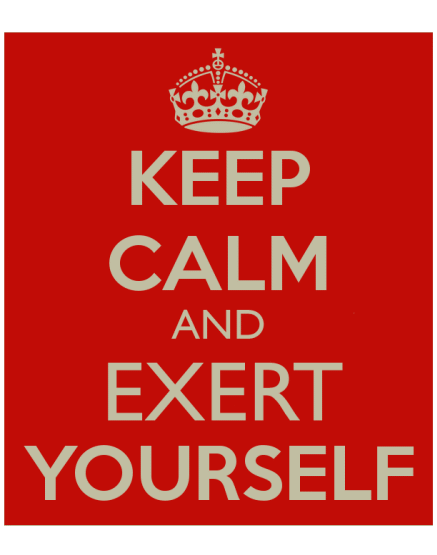
Pace Elinor Dashwood and Emma Woodhouse.
Wed. 29 August:
Introduction to course, grades, books. Why read Austen? Mark
Edmundson,
"Teaching the Truths," Raritan (2003), rptd. in
Why
Teach? In Defense of a Real Education (2013). The way to remember that her name is AUSTEN
(not Austin), is that she wrote nov-E-ls, not nov-I-ls.
The Many Lovers of Miss Jane Austen (2011), BBC. Available in part on YouTube. Joanna Forbes L'Estrange's setting of Austen's prayer, Give us Grace.
Austen in context. Read some of the following:
Alexander Pope, "An
Essay on Criticism" (1711).
Thomas
Gray, "Ode
on a Distant Prospect of Eton College" (1747) NAEL8
1:2863-65 and "Elegy
Written in a Country Church-yard" (1751) NAEL8
1:2867-70 and "The
Bard: a Pindaric Ode" (1757), see
John
Martin's oil rendition, 1817.
Samuel Johnson, Preface to
The Works of William Shakespeare (1765).
William Cowper,
"The
Castaway" (1799), NAEL8 1:2895-97.
Edward Ferrars reads Cowper.("The Castaway").
Fri., 31 Aug.:
Tea in the Combination Room ("What's been really important has been talking to people")
Marilyn Butler,
"Jane Austen," in Oxford Dictionary of National Biography (2004).
Common Measure
and the Hymn.
18th C English
Hymnody.
Classic and Romantic music.
A Note on English Titles.
Download the free Jane
Austen manuscript font.
Short Reports on Cultural, Historical, Political, and other contexts assigned (Paper One), due Friday, 7 Sept.
Mon. 3 September.: Labor Day (no class)
Wed., 5 Sept.:
Horace Walpole, The Castle of Otranto (1764).
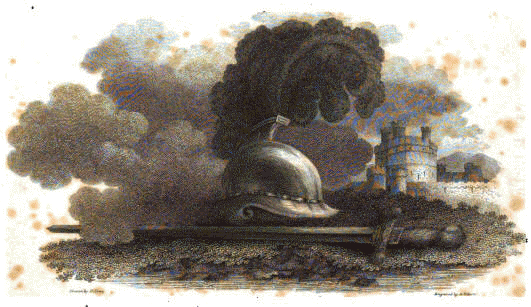
Fri., 7 Sept.:
Love and Freindship [sic]: a Novel in a Series of Letters (1790), pp. 75-106 (OWC), also Introduction, pp. ix-xxxviii. See photos and transcriptions of original in British Library, Add. MS. 59874
Robert Burns, "Tam
o'Shanter" (1791).
Samuel Taylor
Coleridge's two anonymous essays on M. G. Lewis,
The Monk (1796),
and Radcliffe's,
The
Italian (1798).
Short Reports (Paper One) due. Bring 25 copies to distribute in class.
Mon., 10 Sept.:
Wed., 12 Sept.:
Library reconaissance exercise in class
Paper Two assigned, due Monday, 24 Sept. (FYS Outcome #2: Separate facts from inferences and relevant from irrelevant information, and explain the limitations of information.) Austen's women: timeless or dated, individuals or stereotypes?
Thurs., 13 Sept.: 7-10 pm, Hoyt Hall, room 125: extracurricular showing of Oliver Goldsmith's, She Stoops to Conquer (1773). Jane Austen Society at the University of Wyoming, formational meeting (bring a friend).
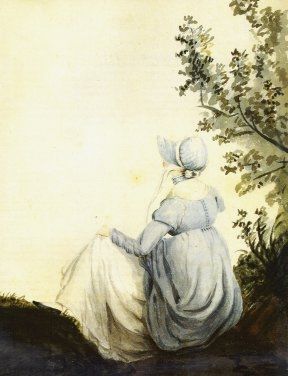
Cassandra Austen (1773-1845), Jane Austen (1804), watercolor, National Portrait Gallery, London.
Fri., 14 Sept.:
Northanger Abbey (1818), vol. 1, pp. 5-87 (NCE). Click here to read a color facsimile of the 1818 first edition.
Mon., 17 Sept.:
Northanger Abbey (1818), vol. 2, pp. 88-174 (NCE).
Wed., 19 Sept..:
Northanger Abbey (1818), review.
Thurs., 20 Sept.: 7-10 pm, Hoyt Hall, room 125: extracurricular showing of Richard Brinsley Sheridan's, The School for Scandal (1777). Cancelled for lack of interest.
Fri., 21 Sept.:
Exercise in Monetary Values assigned: historical interpretation of monetary values. Due Fri., 28 Sept. (FYS Outcome #2: Separate facts from inferences and relevant from irrelevant information, and explain the limitations of information.)
Turn in your annotated copies of Northanger Abbey for grading.
What Jane Saw on 24 May 1813 in London.
Wed., 26 Sept.:
Sense and Sensibility (1811), introduction
Fri., 28 Sept.: Prof. Nye at conference: class meets in Coe 123 with Harry Whitlock of Coe Library staff
Miss Austen Regrets (2008, BBC), Olivia Williams enacts scenes from Austen's life, using a script based on the surviving letters. Written by Gwyneth Hughes and Emma Thomas. The film is 90 minutes
Mon., 1 October:
Sense and Sensibility (1811), vol. 1, pp. 5-98 (NCE). Click here to read a color facsimile of the 1811 first edition.
Genealogies from Pemberley website.
Ellen
Moody's Sense and Sensibility Chronology, from Philological
Quarterly 79 (Fall 2000): 233-66.
Coleridge on
Sensibility and Benevolence (1796).
Edward Ferrars reads Cowper.("The Castaway").
Willoughby reads Shakespeare (Sonnet 116).
Col. Brandon reads Spenser (FQ 5.2.39:4-8).
The texts.
Wed., 3 Oct.:
Fri., 5 Oct.:
Sense and Sensibility (1811), vol. 3, pp. 181-269 (NCE).
Coleridge,
"Dejection: an Ode" (1802), William Wordsworth,
"Ode:
Intimations of Immortality" (1802-04) and
"The Solitary Reaper" (1807).
Listen to the
Grandview Orchestra perform the "Duke of Kent's Waltz."
see Bal Masqué
dancing Knole Park. and
JASNA Ball, 2012 and
Mon., 8 Oct.:
Turn in your annotated copies of Sense and Sensibility for grading.
Paper Three assigned, due Fri., 19 Oct. To criticize the critic
(FYS Outcome #3: Evaluate the credibility, accuracy, and reliability of
conclusions drawn from information.)
Wed., 10 Oct.:
review
Fri., 12 Oct.:
review and self-editing exercise
Midterm Exam Part One distributed
Mon., 15 Oct.:
Midterm Exam, Part 2 (in class).
Midterm Exam, Part One (take home essays) due.
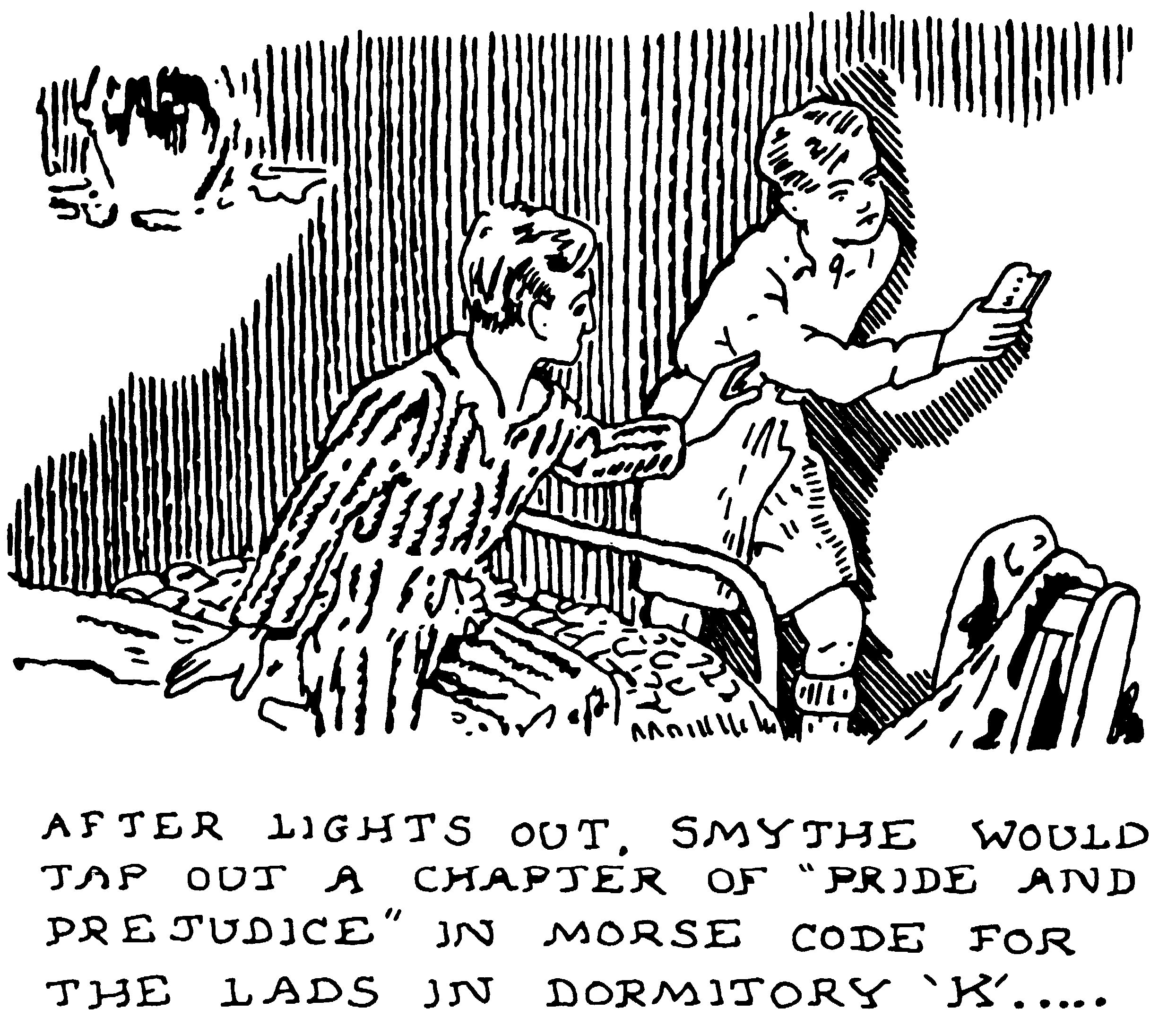
Wed., 17 Oct.:
Pride and Prejudice (1813), vol. 1, pp. 3-89 (NCE). Click here to read a color facsimile of the 1817 third edition.
The Duke of Kent's
Waltz. See the choreography
here.
John
Sutherland, "Who Betrays Elizabeth Bennet?," in Who
Betrays Elizabeth Bennet? Further Puzzles in Classic Fiction
(Oxford, 1999), pp. 17-22, 246.
Fri., 19 Oct.: Middle of Term
Mr. Darcy at the Meryton assembly, according to British comedians David Mitchell and Robert Webb.
Mr. Beveridge's Maggot at Netherfield, Colin Firth & Jennifer Ehle (BBC, 1995), pp.61-62. See the choreography here.
Anne Hathaway in Becoming Jane (2007).
Mon., 22 Oct.:
Pride and Prejudice (1813), vol. 3, pp. 158-254 (NCE).
Wed., 24 Oct.:
Pride and Prejudice (1813), review.

Jane Austen, Lady Susan, autograph manuscript, written ca. 1794-95 and transcribed in fair copy soon after 1805. The Morgan Library & Museum, Purchased in 1947; MA 1226.
Fri., 26 Oct.:
Lady
Susan (c. 1805), pp. 41-103 (PCE). See facsimile of Austen's holograph MS at
the
Morgan Library. And check out the
Jane Austen Fiction
Manuscripts Digital Edition.
Turn in your annotated copies of Pride and Prejudice for grading.
Mon., 29 Oct.:
Mansfield Park (1814), vol. 1, pp. 5-120 (NCE) . Click here to read a color facsimile of the 1814 first edition.
Kotzebue/Inchbald, "Lovers' Vows" (1798), NCE pp. 329-75. Cowper, Tirocinium: or a Review of Schools (1784). Wordsworth, "Simon Lee" (1798) and Coleridge, "Frost at Midnight" (1798).
The Book Junkie introduces Mansfield Park (1814). On Fanny Price. On Mrs Inchbald. Puppet version of Lovers' Vows.
Final draft of Paper Three due.
Paper Four assigned, due Mon., 5 Nov. My dear Sir/Madam... (FYS outcome #4: Recognize and synthesize multiple perspectives to develop innovative viewpoints.)
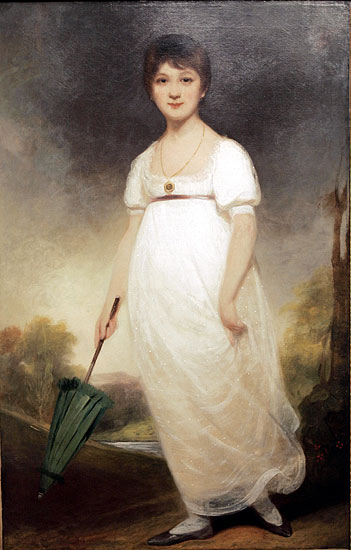
The Rice Portrait of
Jane Austen c. 1788 by Ozias Humphry, RA (1742-1810), failed to sell at
Christie's in 2007 with a reserve of £350,000,
subsequently
authenticated by
Claudia Johnson, Times Literary Supplement, 30 August 2013.
Wed., 31 Oct.:
Mansfield Park, review.
John Sutherland, "Pug: Dog or Bitch?",
in Can Jane Eyre Be Happy? More Puzzles in Classic Fiction
(Oxford, 1997), pp. 31-36, 226.
Chronology of Mansfield
Park by MacKinnon and Chapman (with interpolations).
John
Sutherland, "What do We Know about Frances Price (the First)?," in Who
Betrays Elizabeth Bennet? Further Puzzles in Classic Fiction
(Oxford, 1999), pp. 23-27, 246-48.
William Butler Yeats,
"A Prayer for my Daughter" (1919).
Fri., 2 November:
Mansfield Park (1814) vol. 2, pp. 121-210 (NCE),
Eric W. Nye, "Absent Signifiers in Jane Austen: Toward an Archaeology of
Morals,"
Eighteenth-Century Life
35:3 (Fall 2011): 81-88.
John Sutherland, "Where does Sir
Thomas's Wealth Come From?," in Is Heathcliff a
Murderer? Great Puzzles in Nineteenth-Century Literature (Oxford,
1996), pp. 1-9, 244-45.
Mon., 5 Nov.:
Mansfield Park, review.
Paper Four due. My dear Sir/Madam... (FYS outcome #4: Recognize and synthesize multiple perspectives to develop innovative viewpoints.)
Wed., 7 Nov.:
Mansfield Park, vol. 3, pp. 211-321 (NCE).
Fri., 9 Nov.:
Mansfield Park (1814), review.
Turn in your annotated copies of Mansfield Park for grading.
Paper Five assigned, due Mon., 3 December. JASNA 2019 Essay Contest. (This is the Significant Project required by FYS and is worth 15% of your grade.)
Mon., 12 Nov.:
Emma (1816), vol. 1, pp. 5-106 (NCE). Click here to read a color facsimile of the 1816 first edition.
Wayne Booth, "Control of Distance in Jane Austen's Emma" from
Rhetoric of Fiction (1961) reprinted in The Essential Wayne Booth
(2006).
John Sutherland, "Apple-blossom in
June?", in Is Heathcliff a Murderer?
Great Puzzles in Nineteenth-Century Literature (Oxford, 1996), pp.
14-19, 246; and "Apple-blossom in June--again," in Who Betrays
Elizabeth Bennet? Further Puzzles in Classic Fiction (Oxford, 1999),
pp. 28-33, 248.
Wordsworth, "The Old Cumberland Beggar"
(1798-1800).
Wed., 14 Nov.:
Fri., 16 Nov.:
Emma (1816), vol. 3, pp. 216-333 (NCE).

The Ball, JASNA 2010 AGM, Fort Worth, TX, from BBC's The Many Lovers
of Miss Jane Austen (2011)
Mon., 19 Nov.:
Emma (1816),
review
Ellen
Moody's Calendar of Emma.
Peer review of drafts of
Final Significant Project.
Mon., 26 Nov.:
Turn in your annotated copies of Emma for grading.
Wed., 28 Nov.:
Fri., 30 Nov.:
Persuasion (1818), continued
Wordsworth, "Tintern Abbey" (1798). Hannah More, "The Shepherd of Salisbury Plain," from Cheap Repository Tracts (1795).
Mon., 3 Dec.:
The Watsons (1803-05), pp. 105-52 (PCE). And see the original manuscript from Oxford's Bodleian Library at the Jane Austen Fiction Manuscripts Digital Edition.
Wed., 5 Dec.:
Sanditon (1817), pp. 153-211 (PCE). And see the original manuscript from King's College, Cambridge, at the Jane Austen Fiction Manuscripts Digital Edition.
Persuasion (1818), review.
Turn in your annotated copies of Persuasion for grading.
Fri., 7 Dec.: Prof. Nye at conference
Mon., 10 Dec.: last day of classes
Essay review questions for Final Exam will be distributed.
Final Exam: Friday, 14 December, 1:15 - 3:15 pm, in our usual classroom.
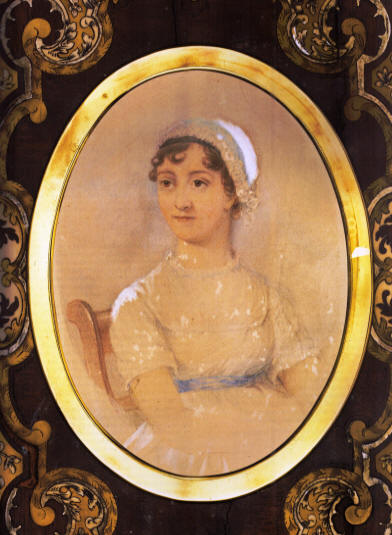
James Andrews, Portrait of Jane Austen (1869), commissioned by
her nephew
Rev. James Edward Austen-Leigh to accompany his biography of her,
sold at Sotheby's 10 December 2013 for £164,500; image
appears on £10 note issued in 2017
Required Books:
I require use of the Norton Critical Editions. The following six novels are available in the UW bookstore bundled for $46.70 (9780393699043). Or you can buy them individually as follows:
Jane Austen, ed. Claudia L. Johnson. Sense and Sensibility (1811) (New York: W. W. Norton, paper, 2001, Norton Critical Edition). 978-0-393-97751-6
Jane Austen, ed. Stephen M. Parrish. Pride and Prejudice (1813) (New York: W. W. Norton, paper, 4th edn., 2016, Norton Critical Edition). 978-0-393-26488-3
Jane Austen, ed. Claudia L. Johnson. Mansfield Park (1814) (New York: W. W. Norton, paper, 1998, Norton Critical Edition). 978-0-393-96791-3
Jane Austen, ed. George Justice. Emma (1816) (New York: W. W. Norton, paper, 4th edn., 2011, Norton Critical Edition). 978-0-393-92764-1
Jane Austen, ed. Patricia Meyer Spacks. Persuasion (1818) (New York: W. W. Norton, paper, 2nd edn., 2012, Norton Critical Edition). 978-0-393-91153-4
Then there are two volumes of her unpublished writings:
Jane Austen, ed. Margaret Drabble. Lady Susan, The Watsons, and Sanditon (New York: Penguin Books, paper, 1974, Penguin Classics Edition). 978-0-140-43102-5
Jane Austen, ed. Margaret Anne Doody & Douglas Murray. Catharine and Other Writings (New York: Oxford World's Classics, paper, 2009). 978-0-199-53842-3
Optional Books:
Abrams, M. H. & Geoffrey Harpham. A Glossary of Literary Terms, 11th edn. (NY: Cengage, paper, 2011). 978-1285465067
Joan Klingel Ray. Jane Austen for Dummies (NY: Wiley, 2006). 978-0-470-00829-4
Deidre Le Faye. Jane Austen the World of Her Novels (London: Frances Lincoln, 2003). 978-0-711-22278-6
Josephine Ross. Jane Austen: a Companion (New Brunswick, NJ: Rutgers University Press, 2007). 978-0-813-53954-6
Jane Austen, ed. Deirdre Le Faye. Jane Austen's Letters (Oxford: Oxford University Press, paper, 1997). 978-0-192-83297-9. See also Molland's online subject index to this edition.
Blogs and other links:
Jane Austen Society of North America (JASNA)
Jane Austen Society of the University of Wyoming (JASUW)
Jane Austen Society (United Kingdom)
Hyper-concordances of all Jane Austen's novels
Course Description:
In an age of revolution, experimentation, and dissolution of received literary forms, Jane Austen rescued the novel and demonstrated its suitability for the most comprehensive and humane literary purposes. With exquisite craftsmanship she raised the stakes for her nineteenth-century successors in the novel, and her audiences have been faithful ever since. We will examine her antecedents in the eighteenth-century, the complex cultural milieu in which she emerged, and the range of critical opinion she has evoked over the past two centuries. Why are people admitting, today more than ever, that they love Jane Austen?
Course Objectives:
1. Comprehend the history of the
language, its grammar and syntax, the arts of rhetoric, and the
conventions of expository writing
2. Read extensively in canonical
literature while learning to question the status and historical
formation of the canon: master literary periods, terms, and major
authors
3. Read intensively with formal concentration, discerning the
quality of different literary modes and styles: know the historical
conventions of literary form and be able to differentiate literary
styles
4. Extend these methods of analysis to new works outside the
canon and to works outside the sphere of conventional textuality
5.
Understand various modes of literary criticism and be able to devise
appropriate critical theses both in writing and conversation: know the
major schools of criticism and be able to replicate their interpretative
strategies
6. Show intelligence, imagination, and creativity in the
formation and support of original literary interpretations
7. Relate the
history of literary creativity to allied fields of humane activity:
politics, arts, philosophy, theory and culture in general.
FYS Course Objectives:
1. Access diverse information through focused research, active
discussion, and collaboration with peers.
2. Separate facts from
inferences and relevant from irrelevant information, and explain the
limitations of information.
3. Evaluate the credibility,
accuracy, and reliability of conclusions drawn from information.
4. Recognize and synthesize multiple perspectives to develop
innovative viewpoints.
5. Analyze one�s own and others�
assumptions and evaluate the relevance of contexts when presenting a
position.
6. Communicate ideas in writing using appropriate documentation
Grading Standards:
Annotations, class participation and take home exercises (numerical, total 10% of final grade), Quizzes on assigned readings (numerical, total 10%), essays and presentations (letter-grade, total 25%), final Significant Project (letter-grade, 15%), midterm exam (half objective-numerical, half essay letter-grade, total 20%), final exam (half objective-numerical, half essay letter-grade, total 20%). The final course grade is determined from the weighted total of the above in accordance with usual academic standards (ex: 90-100=A, 80-89=B, etc). We use straight grades as required by USP for FYS, not +/- grades.
Attendance policy:
University-sponsored absences are cleared through the Office of Student Life. Attendance is essential in a class like this. You will be allowed one absence by prior arrangement for personal business reasons. For that and any subsequent officially authorized absence you will be required to turn in a two-page essay on the syllabus material for each hour-long class period you miss and must contact me in advance for details. The essay must be turned in the first class period after you return from your absence. Failure to turn in the essay will signify that you do not intend to pass the class. This policy accords with UW Regulation 6-713.
Academic Honesty is strictly enforced according to UW Regulation 6-802 "Procedures and Authorized University Actions in Cases of Student Academic Dishonesty".
The Student Code of Conduct may be found by linking to the Dean of Students Office page.
Disability Statement: If you have a physical, learning, sensory or psychological disability and require accommodation, please let me know as soon as possible. You will need to register with, and provide documentation of your disability to University Disability Support Services (UDSS) in SEO, room 330 Knight Hall.
Title IX Statement: UW faculty are committed to supporting students and upholding the University�s non-discrimination policy. Under Title IX, discrimination based upon sex and gender is prohibited. If you experience an incident of sex- or gender-based discrimination, we encourage you to report it. While you may talk to a faculty member, understand that as a "Responsible Employee" of the University, the faculty member MUST report information you share about the incident to the university�s Title IX Coordinator (you may choose whether you or anyone involved is identified by name). If you would like to speak with someone who may be able to afford you privacy or confidentiality, there are people who can meet with you. Faculty can help direct you or you may find info about UW policy and resources at http://www.uwyo.edu/reportit You do not have to go through the experience alone. Assistance and resources are available, and you are not required to make a formal complaint or participate in an investigation to access them.
Any changes to the syllabus will be announced in class or on this course website, where the date of most recent revision follows:
Last updated: 30-Nov-18
Notify me of corrections or additions.